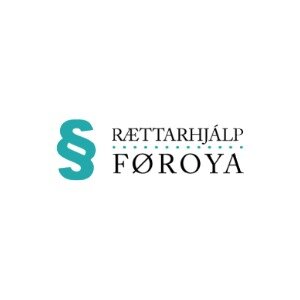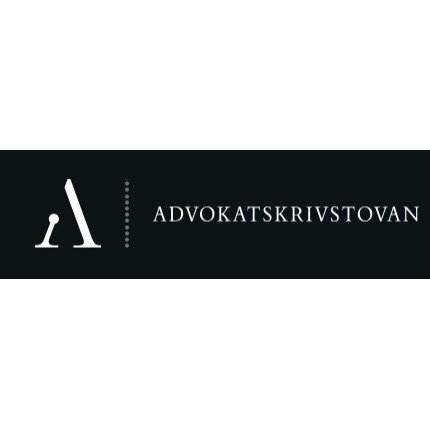Best Inheritance Law Lawyers in Tórshavn
Share your needs with us, get contacted by law firms.
Free. Takes 2 min.
List of the best lawyers in Tórshavn, Faroe Islands
About Inheritance Law in Tórshavn, Faroe Islands
Inheritance law in the Faroe Islands follows Danish legal foundations with local administration aimed at the Faroese community. Wills, intestate succession, and estate settlement are handled within the Danish framework, adapted for the Faroese context. In practice, probate and distribution often involve the Faroese courts and local legal professionals (advokat or lógfrøðingur) who understand both Danish law and Faroese procedures. This guide explains how to navigate these processes in Tórshavn.
In Faroe Islands practice, key steps include validating a will, appointing executors or administrators, and distributing assets according to the applicable rules. Because the laws are administered through the Danish system, residents should plan for potential cross-border considerations if assets lie outside the Faroe Islands. Understanding the local court processes and the role of legal counsel can reduce delays and disputes. This guide emphasizes practical steps tailored to people living in Tórshavn and neighboring districts.
In Denmark and the Faroe Islands, inheritance matters are primarily governed by the Danish Inheritance Act, Arveloven, with related rules on probate and wills. See the Danish legislation portal for official texts.
Authoritative sources:
- Danish legal information portal - Arveloven and related inheritance statutes
- Danish citizen portal - guidance on wills and inheritance
- Danish Courts Service - probate and court procedures
Why You May Need a Lawyer
Every inheritance matter is unique, and local rules apply. A Faroese- or Danish-qualified lawyer can help you avoid costly mistakes. Here are concrete scenarios where legal counsel is essential in Tórshavn.
- You suspect a will is invalid or was drafted under duress. A lawyer helps assess capacity, undue influence, and proper formalities under Arveloven.
- You must contest a will that seems to unfairly exclude a rightful claimant. An attorney can guide you through procedural challenges and evidence collection.
- You are executinga will and face multi-jurisdiction assets, including property in Denmark or abroad. A lawyer coordinates cross-border probate and asset transfers.
- A surviving spouse or children claim a forced share or restricted rights. Counsel ensures compliance with corresponding entitlements and calculations.
- Assets include family farmland or coastal property in the Faroe Islands requiring local registrations and valuation. A solicitor ensures proper transfer and registration in the Faroese system.
- The estate contains a business or farm with complex ownership, debts, and employee matters. A legal advisor aligns estate settlement with local tax and creditor rules.
In practice, a lawyer (advokat or lógfrøðingur) can also help with drafting wills, communicating with trustees, and coordinating with estate executors. You should consider engaging counsel early to prevent delays and disputes. If fees arise, your attorney can explain cost structures and estimate timelines for your case.
Local Laws Overview
The Faroe Islands rely on Denmark’s legal framework for inheritance, supplemented by local procedures. Two central statutory pillars guide most matters in Tórshavn:
- Arveloven (Danish Inheritance Act) - This is the core statute governing who inherits and how estates are distributed. It covers intestate succession, testament validity, and rights of close family members. The Faroe Islands apply Arveloven with local court administration and customary practices. Effective and amended versions are published by Danish authorities.
- Skifteretsloven / probate rules (Danish Probate Rules) - These rules govern how estates are opened, administered, and closed in probate proceedings. In the Faroe Islands, the Skifteret framework is applied through local courts, with guidance from Danish procedural norms. Check the Danish courts and legislation portals for current text and procedures.
- Cross-border asset considerations - When real property or financial interests lie outside the Faroe Islands, counsel coordinates with Danish authorities and local Faroese registries to ensure proper transfer, valuation, and taxation. This often requires international coordination within the Danish legal system.
In Denmark and the Faroe Islands, the central sources are Arveloven and the associated probate rules, which are available through official Danish portals. For practical steps, consult both Arveloven texts and the Danish Probate framework.
Notes on recent developments and trends: The Faroe Islands generally align with Danish reforms to inheritance law as they occur, rather than maintaining a separate, extensive Faroese code. Recent changes in Danish law tend to impact both jurisdictions, especially around will formalities, guardianship provisions, and cross-border probate issues. For precise text and dates, review official Danish sources below.
Official sources for this section:
Frequently Asked Questions
These questions use plain language and address practical concerns you may have when handling inheritance matters in Tórshavn. Each question starts with a Wh- word and stays within 50-150 characters.
What is the first step to start probate in Tórshavn?
Identify the deceased’s assets and prepare a basic list. Gather the will, death certificate, and any debts. Then consult a local advokat or lógfrøðingur to determine the proper court filing.
How do I contest a will in the Faroe Islands?
Consult a lawyer to review capacity, undue influence, and formal validity. File a challenge with the probate court and present supporting evidence.
What is the role of an executor in an inheritance case?
The executor administers the estate, pays debts, and distributes assets under court supervision. The court approves the final settlement.
Do I need a Faroese lawyer or can a Danish attorney handle it?
For local procedures and registrations in Tórshavn, a local advokat or lógfrøðingur is preferable. They understand Faroese registries and language nuances.
How long does probate typically take in the Faroe Islands?
Case length varies with complexity. Simple wills may take 3-6 months; complex estates with cross-border assets can exceed 12 months.
What documents are essential to start an inheritance case?
Death certificate, will (if any), asset list, debt records, identification, marriage and birth certificates of heirs, and property registrations.
Is a will required in the Faroe Islands?
No, a will is not required, but it clarifies heirs and asset distribution. Without a will, intestate rules apply and may favor statutory heirs.
Can foreigners inherit Faroe Islands assets?
Non-residents can inherit under Danish and Faroese law, but cross-border issues may require additional documentation and tax guidance.
Should I consider cross-border assets in my planning?
Yes. Assets outside the Faroe Islands can complicate probate, taxation, and transfer. Coordinate with counsel experienced in cross-border matters.
Do I need to pay inheritance tax in the Faroe Islands?
Denmark abolished the general inheritance tax for close relatives in some contexts, but rules vary with asset type and relationship. Check current Danish guidance for specifics.
What is the difference between a will and a distribution plan?
A will declares how assets should be distributed after death. A distribution plan is the court-supervised method to implement that plan during probate.
Can a will be changed after death in the Faroe Islands?
A will typically cannot be changed posthumously. Amendments require a new will created by the testator before death and properly witnessed.
Next Steps: How to Find and Hire a Inheritance Law Lawyer in Tórshavn
- Define your goals and assets. Create a current inventory of real estate, bank accounts, and business interests. This helps the lawyer assess scope and complexity.
- Identify potential lawyers. Look for advokater or lógfrøðingar with experience in inheritance and probate in the Faroe Islands or Denmark. Prioritize local presence for court interactions.
- Check credentials and experience. Verify bar membership, years of practice, and specific experience with wills and cross-border estates.
- Request initial consultations. Email or call to schedule an assessment. Ask about estimated costs, timelines, and required documents.
- Discuss fee arrangements. Ask about hourly rates, flat fees for probate steps, and potential retainers. Get a written engagement letter.
- Prepare for the consultation. Bring the death certificate, will, asset list, debts, and identification. Include any prior correspondence with other heirs.
- Choose counsel and sign an engagement. Confirm who handles probate filings, court communications, and document translation if needed. Set expectations for updates.
Timeline estimates: The initial consultation may be scheduled within 1-2 weeks of outreach. Drafting a will or initiating probate often takes 2-6 weeks after engagement. Complex matters with cross-border assets can take 6-12 months or longer depending on court schedules.
Additional Resources
These resources provide official guidance and procedural information on inheritance matters, including wills, probate, and cross-border issues.
- Domstol.dk - Danish Courts Service. Provides procedural information for probate filings and court processes. https://domstol.dk
- Borger.dk - Danish citizen portal. Offers practical guidance on wills, heirs, and probate procedures you can use before engaging a lawyer. https://www.borger.dk
- Rechtsinformation - Official Danish legal information portal. Access Arveloven text and related inheritance regulations. https://www.retsinformation.dk
Disclaimer and Practical Considerations
This guide provides general information and is not a substitute for legal advice. Inheritance law involves complex facts and may require tailored solutions. Always consult a qualified lawyer (advokat or lógfrøðingur) in Tórshavn for advice specific to your situation.
Lawzana helps you find the best lawyers and law firms in Tórshavn through a curated and pre-screened list of qualified legal professionals. Our platform offers rankings and detailed profiles of attorneys and law firms, allowing you to compare based on practice areas, including Inheritance Law, experience, and client feedback.
Each profile includes a description of the firm's areas of practice, client reviews, team members and partners, year of establishment, spoken languages, office locations, contact information, social media presence, and any published articles or resources. Most firms on our platform speak English and are experienced in both local and international legal matters.
Get a quote from top-rated law firms in Tórshavn, Faroe Islands — quickly, securely, and without unnecessary hassle.
Disclaimer:
The information provided on this page is for general informational purposes only and does not constitute legal advice. While we strive to ensure the accuracy and relevance of the content, legal information may change over time, and interpretations of the law can vary. You should always consult with a qualified legal professional for advice specific to your situation.
We disclaim all liability for actions taken or not taken based on the content of this page. If you believe any information is incorrect or outdated, please contact us, and we will review and update it where appropriate.









